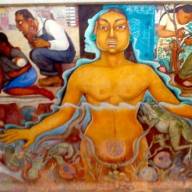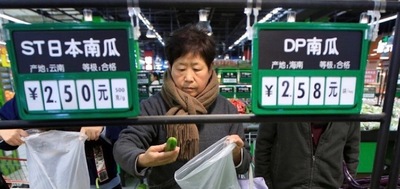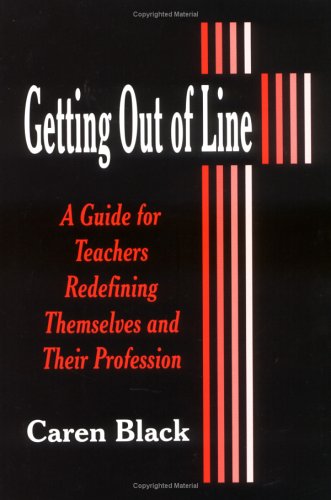I am a member of the working class in the United States. I have been a shop steward for two unions and have engaged in work with several anti-imperialist and socialist organizations. I am second generation Vietnamese. My mother emigrated from Saigon during the U.S. invasion of Vietnam that killed two to three million people over the course of over a decade. My father was a working-class white American who was deployed to Vietnam to participate in the genocidal war. White supremacy and war have always acted as vice grips meant to strangle and suffocate my family and my community. Anti-Asian sentiment and the precipitous decline in living standards for workers and poor people propelled me into the struggle for social transformation and revolutionary change.
My experience with racism and the constant stress of living under the dictatorship of capital eventually led me to seek tutelage from the Black liberation movement. The Black liberation movement has historically been the most anti-war and pro-socialist movement in the United States. Martin Luther King Jr. came out against the Vietnam war in 1967 . He famously noted that the bombs America dropped on Vietnam explode at home before he was assassinated the following year. The Black Panther Party made the struggle against the American Empire a critical aspect of their work to liberate Black Americans from white supremacy and capitalist exploitation. Huey Newton issued a letter to the National Liberation Front of South Vietnam offering members of the organization to fight by their side against the United States and operated solidarity branches in the Democratic People’s Republic of Korea and Algeria.
King and the Black Panther’s example is just as instructive today as it was during the height of the Vietnam war. We cannot understand the divergent paths taken by the United States and China without understanding the centrality of Empire and white supremacy. White supremacy is most often cloaked as American exceptionalism, an ideology which dehumanizes and villainizes all peoples and nations seen by the capitalist class as sites of super profits in the disguise of protecting the security of the exceptional U.S. nation-state. The incessant framing of Black Americans as a threat to the safety of white America has fueled the policies responsible for the mass incarceration regime. Black America comprises of one third of a prison population of two million and police murder is the sixth leading cause of death for young Black men. The twin evils of racist state repression and capitalist exploitation have sent Black wealth into a freefall toward zero by the year 2053.
The same white supremacist ideology that dehumanizes Black Americans within the United States also steers the American Empire’s regime of endless war abroad. China is routinely depicted by the U.S. corporate media and the military state as a pariah and a Red Menace; an authoritarian dictatorship with nothing but terror to offer the world. The reality, of course, is much different. The American Empire has attempted the overthrow of over fifty foreign governments in as many years , causing the deaths of tens of millions and sending the peoples of these countries into a state of desperate economic and political destitution. For the most part, most Americans have not bat[ted] an eye to the Empire’s regime of chaos. A major reason for this is the fact that many Americans believe in the exceptionalism of the Empire and are terribly misinformed about its many crimes.
The People’s Republic of China has much to offer those in the struggle against the American Empire from within the belly of the United States. Prior to the “opening up” period, China was one of Black America’s greatest international allies. Both Claudia Jones and W.E.B. DuBois visited China after the founding of the People’s Republic and praised the Chinese Revolution as an example to follow for the rest of the colonized world. Chairman of the Central Committee of the Chinese Communist Party, Mao Tse-Tung, issued solidarity statements to the Black struggle for self-determination in 1963 and again in 1968 after Martin Luther King’s assassination . In 1966, former NAACP activist and advocate of armed self-defense Robert Williams moved to China at the invitation of Mao after being exiled from the United States as an enemy of the state. In 1972, Huey Newton would make an invited visit to China and meet with Zhou Enlai and the Central Committee of the Communist Party of China well before U.S. president Richard Nixon’s visit to normalize relations between the U.S. and China.
Both market reform and the Sino-Soviet split profoundly shifted China’s foreign policy. China’s “opening up” period beginning 1978 came in response to changing conditions worldwide. The global capitalist economy was in crisis and the Empire’s “Cold War” had left only destruction in its wake. China’s leadership made the conscious decision to institute wide ranging market reforms in order to eradicate underdevelopment and poverty in the country. Despite the contradictions of reform which spelled the end of formal solidarity with the Black struggle, China’s market socialist period has already left us many lessons for the working class, especially its most oppressed sections.
Let’s take just two examples: China’s handling of Xinjiang province and the related Belt and Road Initiative. The Western corporate media has slandered China as a “Han chauvinist” country hellbent on suppressing the rights of its Uyghur minority. Xinjiang was the target of repeated terrorist attacks between the years of 1990 and 2015. China responded not by ceding ground to the imperialists that sought to break the country to pieces but by addressing the material conditions in the region which made terrorism potentially attractive. China’s anti-poverty initiative has raised the standard of living for the people in Xinjiang, especially for the Uyghur population. Uyghurs and other ethnic groups in the region now benefit from expansive employment and educational programs as well as seed technology that assists subsistence farmers in growing agricultural stock on arid and highly saline land.
The Belt and Road Initiative (BRI) is China’s global project to spread the gains made in Xinjiang province to the rest of the world with a focus on infrastructure development. As the name suggests, the initiative proposes the development of both maritime (Belt) and land (Road) trade routes through the old Silk Road which are independent of Western and U.S. finance capital. China has committed trillions of dollars for the purposes of arranging “win-win” economic and cultural exchanges with the 126 countries currently signed on to the initiative. The United States has robbed the world of twenty-five percent of its resources through the establishment of a unipolar capitalist economic development model. Many of the world’s problems would be resolved if the United States participated in a redistributive model of economics that emphasized mutual cooperation with nations rather than a zero-sum game.
U.S. hegemony is a euphemism for white dominance and the unfettered ability of capital to dictate all aspects of political economy. The last forty years of white capitalist and imperialist hegemony has brought stagnant wages, increased poverty, endless war, and racist state terror to more than half of the world’s population. China’s history of solidarity with the Black liberation movement and its current policy of “win-win” cooperation provides a framework that activists and organizers can learn lessons from and apply in their own movements for liberation from within the motherland of imperialism. The biggest lesson that the example of China teaches us is that the U.S. no longer holds a monopoly on the economic and political direction of humanity. In order for the American left to join China and other countries around the world in the struggle to develop an alternative model of development to imperialism, it must realize first that white supremacy and war are vice grips strangling the aspirations of workers and oppressed people in the American mainland.
Author
Danny Haiphong is an activist and journalist in the New York City area. He and Roberto Sirvent are co-authors of the book entitled American Exceptionalism and American Innocence: A People’s History of Fake News--From the Revolutionary War to the War on Terror (Skyhorse Publishing), available here, here, or here, and at your local independent bookseller. He can be reached at , on Twitter spiritofho, and on Youtube at The Left Lens with Danny Haiphong.
This article was originally intended as remarks to the China-US Solidarity Network Silk Road Delegation. Due to logistical issues, the remarks have instead been republished here. TLA appreciates Danny's permission to repost it here.



















